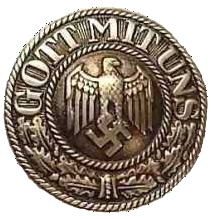No. 32
Lord Kilmarnock to Earl Curzon.
Copenhagen, February 3, 1919.
My Lord,
I HAVE the honour to report that a French gentleman, who left Petrograd towards the end of January, has given me the following information as regards the situation in Russia:―
M. F―― was of opinion that the military and civil power of the Bolsheviks had reached its zenith and was already on the decline. The leaders of the movement had acquired strength first because they held out prospects of limitless pillaging to their followers, and then by reserving for the Red Guard the remaining supplies of food. These supplies were now exhausted, and the money which was so lavishly given to the Guards could buy nothing. When the workmen were discontented in the past, the Bolsheviks had been able to quell disorder by making a distribution of flour, but now they could offer nothing to the workmen except depreciated roubles. The lack of arms and ammunition was becoming serious, and the frequent desertions, especially of the peasant soldiers, had a demoralising effect on the army.
The Bolsheviks comprised chiefly Jews and Germans, who were exceedingly active and enterprising. The Russians were largely anti-Bolshevik, but were for the most part dreamers, incapable of any sustained action, who now, more than ever before, were unable to throw off the yoke of their oppressors. Night after night the counter-revolutionary Societies held secret meetings to plot against the Bolsheviks, but never once was a serious attempt made to carry through the conspiracy. The starving condition of the people quite paralysed their will-power.
The country was in a complete state of anarchy. When Petrograd said "yes," Moscow said "no," and neither were able to impose their will on the local Soviets in the provinces, though the Soviet at Moscow especially was endeavouring to establish its hold over all the country. There were no newspapers except those printed in Moscow, which were full of Iies ; railway communications were coming to an end, and strikes were of frequent occurrence. In Petrograd practically all the factories were idle, and in the Moscow district but few were still working ; and as an example of the commercial apathy into which the country had sunk, M. F―— mentioned that the famous Putilov works had only turned out one engine in a whole month. The committees of the poor paralysed all trade, which was further hampered by increasing local jealousies, and it was now practically impossible to move goods or fuel from one quarter to another, or even from one house to another. The interference of these committees had led to such a state that the peasants had refused to bring food in to the cities, but preferred to bury their small stocks ; and though lately the situation had slightly improved, the position was precarious and he could not see how the population of Northern Russia would survive the months of February, March, and April. Fortunately the weather had so far been mild, as no fuel was available. He himself had managed to live on biscuits and sardines, but when he left Petrograd people had to exist on about half a pound of oats a day. At any moment even the supply of oats might be exhausted.
He said that the Bolshevik Ieaders felt that their days were numbered, and they were trying to introduce into the direction of affairs representatives of the more moderate parties, such as the Revolutionary Socialists, and their programme was being modified accordingly. The "Terrorism" had lately been less severe, the executions fewer, and many of the Red Guards themselves were being shot on account of the crimes which they had committed. An effort was being made to carry out the principles of "communism" on a more ideal basis, and though there was no effective restraint on plundering and thieving on the part of the Red Guards, still it happened now that selfish thieves, i.e., thieves who stole and refused to share the booty with the other Guards, were shot by their comrades. M. F―— was quite positive, however, that the interesting experiment of introducing "communism" had definitely failed.
Any régime which could offer food to the people would at once gain their support, and any régime, however tyrannical and however corrupt, would be milder and more honest than the present.
I have, &c.,
KILMARNOCK.
Below: Lord Kilmarnock circa 1915-1920:















